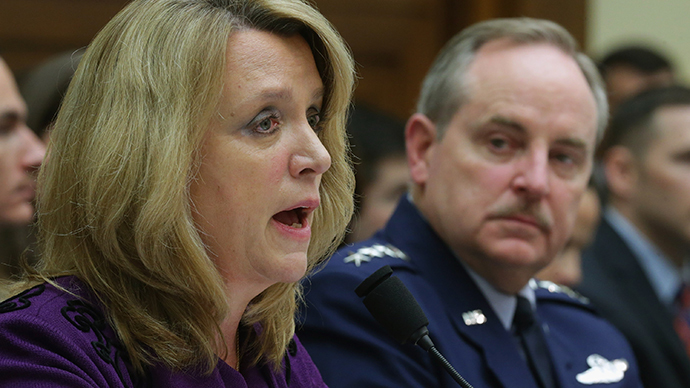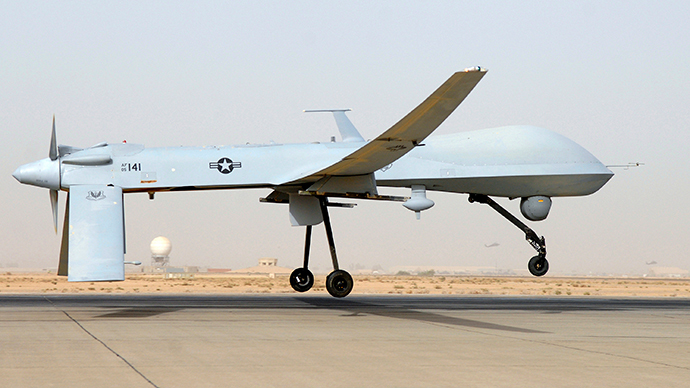The United States Air Force has announced a pay rise incentive for its drone pilots, as officials admit the operators are working under significant stress due to the shortage of unmanned aerial vehicle operating personnel.
During a 'State of the Air Force' briefing at the Pentagon, Air Force Secretary Deborah Lee James and Air Force Chief of Staff Gen. Mark Welsh admitted a significant drone pilot shortage on the force, and promised to increase their pay to encourage experienced personnel to stay.
“The crisis right now is with the pilot force. It is the most stressed part because it is the lowest manned part of the RPA [remotely pilot aircraft] fleet, percentage-wise,” Welsh said. “They have the longest and most expensive training pipeline in that community.”
“The biggest problem is training,” Welch said, referring to shortages of MQ-1 Predator and MQ-9 Reaper operators. “We can only train about 180 people a year and we need 300-a-year trained, and we’re losing about 240 from the community each year.”

Drone pilots, as well as sensor operators, are always under “significant stress” during the mission, James said, due to an “unrelenting pace of operations.”
While a conventional pilot flies between 200 and 300 hours per year on average, “RPA pilots log four times that much, ranging from 900 to 1,100 flight hours per year,” she said. “This is very stressful operations because mistakes can cost lives.”
To retain and attract new drone operators, James announced that the Air Force is looking to substantially increase their pay.
“I will be utilizing my authority to compensate and incentivize career RPA-only pilots whose service obligations are expiring. As our experienced operators reach the end of their initial active-duty service commitment we will increase the monthly incentive pay from $650 a month to $1,500 for those RPA pilots while we also explore more permanent incentive plans,” James said at the briefing.
These are only the “first steps” in an effort to relieve pressure on pilots. More are expected, the Air Force secretary said.
"We will maximize the use of the National Guard and reserve and indeed, we will be redirecting some resources in order to provide the money to bring additional personnel on active duty," she said.
In addition, those who have had drone flight training, served their contracts, and moved on to other areas will be asked to come back to the drone missions world.

